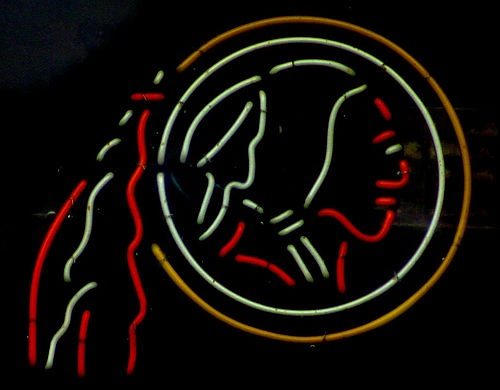
October 6, 2014; Psychology Today
One year ago, the National Congress of American Indians released a report on the harmful effects of Indian sports mascots like the ones used by the Washington, D.C. NFL franchise and the Cleveland Major League Baseball team. Ending the Legacy of Racism in Sports & the Era of Harmful “Indian” Sports Mascots reached a number of powerful conclusions that have been ignored by professional and college sports teams and which the teams in Cleveland (not the Browns) and Washington (not the Nats) haven’t yet grasped:
“Widely consumed images of Native American stereotypes in commercial and educational environments slander, defame, and vilify Native peoples, Native cultures, and tribal nations, and continue a legacy of racist and prejudiced attitudes. In particular, the ‘savage’ and ‘clownish’ caricatures used by sports teams with ‘Indian’ mascots contribute to the ‘savage’ image of Native peoples and the myth that Native peoples are an ethnic group ‘frozen in history.’”
“When exposed to these images, the self-esteem of Native youth is harmfully impacted, their self-confidence erodes, and their sense of identity is severely damaged. Specifically, these stereotypes affect how Native youth view the world and their place in society, while also affecting how society views Native peoples. This creates an inaccurate portrayal of Native peoples and their contributions to society. Creating positive images and role models is essential in helping Native youth more fully and fairly establish themselves in today’s society.”
“The intolerance and harm promoted by ‘Indian’ mascots have very real consequences. The alarmingly high rates of hate crimes against Native people indicates a need to take immediate action in a number of areas, including the removal of harmful images and education of the general public to diffuse additional hateful activity against Native peoples. According to Department of Justice analysis, ‘American Indians are more likely than people of other races to experience violence at the hands of someone of a different race.’”
October, as some readers know, is National Bullying Prevention Awareness Month, an annual event established in 2006 by PACER’s National Bullying Prevention Center. This past week, Dr. Michael Friedman published a piece in Psychology Today tying the use of disparaging Native American mascots to the practice of bullying.
Sign up for our free newsletters
Subscribe to NPQ's newsletters to have our top stories delivered directly to your inbox.
By signing up, you agree to our privacy policy and terms of use, and to receive messages from NPQ and our partners.
“By using the R-word despite the repeated public protests by the Native American community,” Friedman writes, “the Washington team and NFL are bullying Native Americans and getting away with it.”
This paragraph from Friedman’s article is stunningly clear in establishing a strong basis for objecting to the Washington team’s racially disparaging name and mascot:
“Bullying happens when a student is repeatedly harmed, psychologically and/or physically, by another student or a group of students. Typically, bullies are physically, psychologically or socially stronger than the children they bully. ‘There are remarkable similarities between the NFL’s behavior and how bullying is defined in psychological research,’ said Dr. Mitchell J. Prinstein, the John Van Seters Distinguished Professor of Psychology at University of North Carolina-Chapel Hill and expert on peer relations. ‘A schoolyard bully exerts force towards a passive victim in ways that make them feel unequal. Bullying also is typically used to marginalize a person (or group of people) to damage their relationships or social standing. The use of a racial slur is a horrific way to achieve those goals. This form of bullying makes a victim feel devalued, unimportant, ostracized from mainstream society, and clear target for future aggression by others.’”
Contrary to the position of Washington’s Daniel Snyder, as well as his colleagues at the NFL, Friedman notes that the American Psychological Association, American Sociological Association, American Counseling Association, and the National Education Association have all condemned the use of Native mascots like Washington’s and Cleveland’s as “damaging to children’s mental health and development.”
The article goes into detail with analysis that concludes that there is a bully in the Native American mascot controversy: Dan Snyder. “If a child behaved the way Washington team owner, Dan Snyder, did—he responded to calls from Native American groups to stop using the racial slur: ‘We will never change the name of the team…It’s that simple. NEVER — you can use caps,’” Friedman says, “that would be considered bullying in a school environment.”
Like many bullies, however, Snyder has a gang supporting him—the 31 other NFL team owners who haven’t told him to drop the racial epithet, and a gang leader in the form of the NFL commissioner and hierarchy who back him in his intransigence.—Rick Cohen












